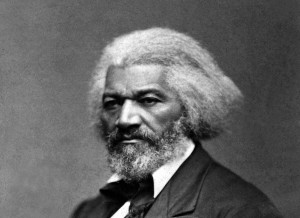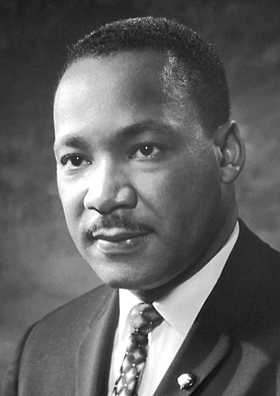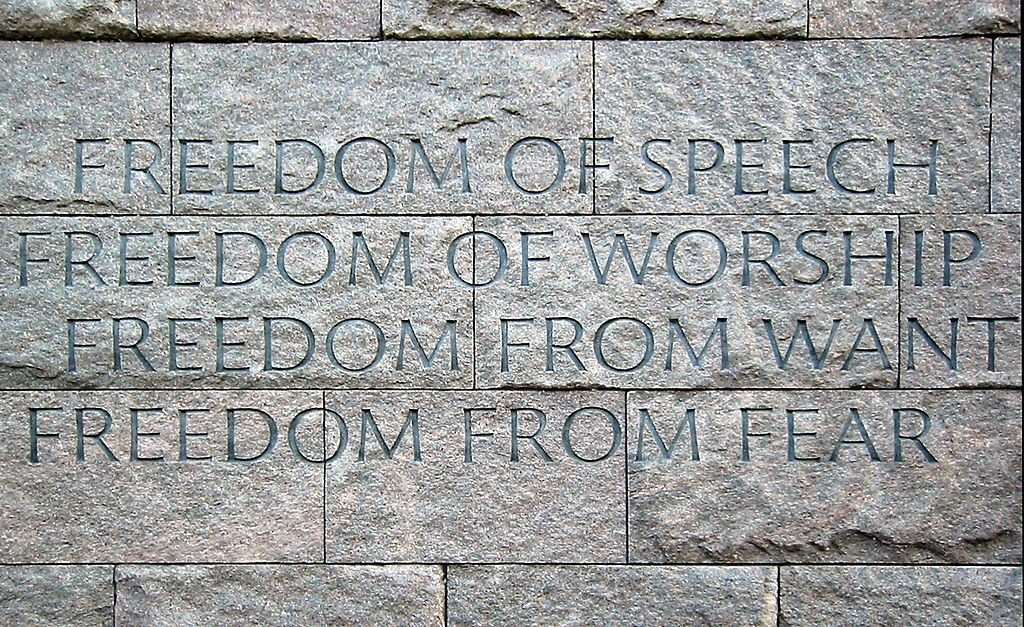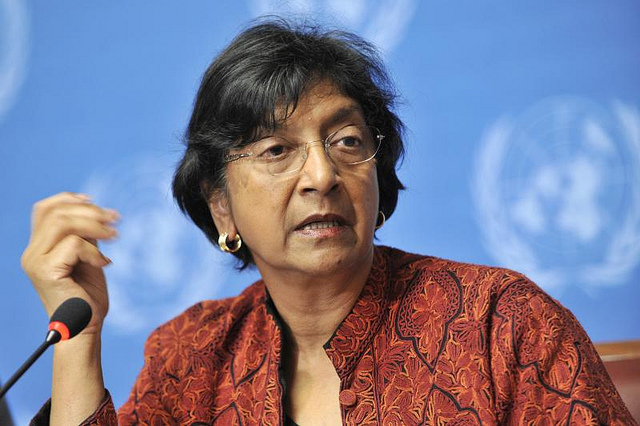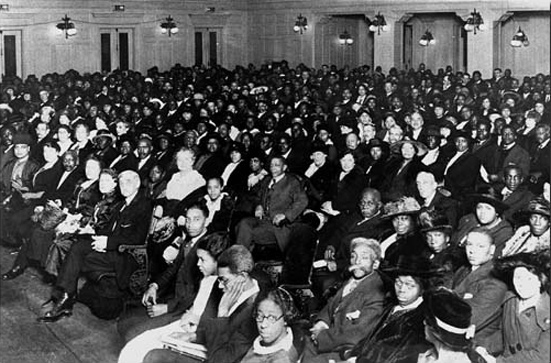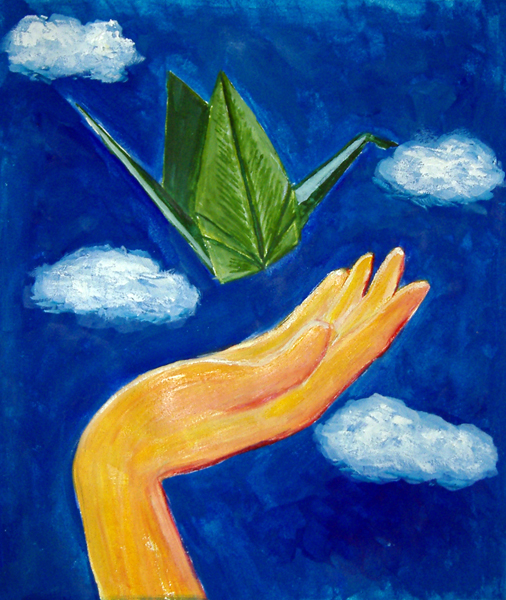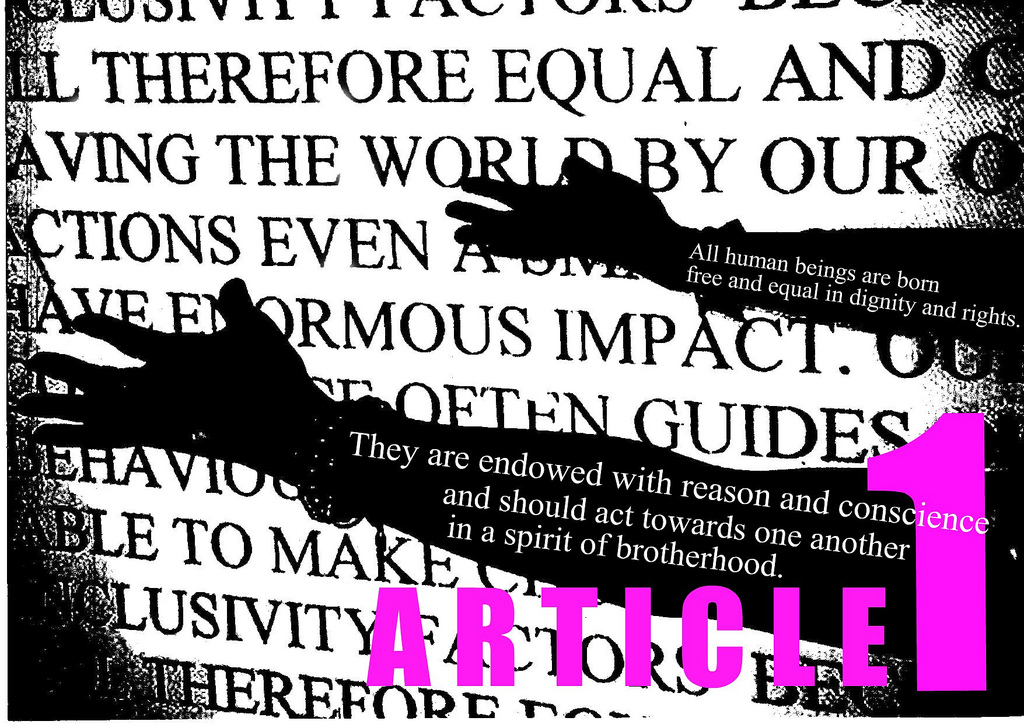human rights
The work on this site seeks to learn from the human rights struggles of the past. How was legal slavery abolished? How has the emancipation of women been advanced? How did apartheid come to an end? Learning about these profound human rights achievements can help us better understand how to overcome human rights violations against non-citizens. It also reports on human rights issues of today as they impact on non-citizens.
-
Would you have me argue that all human beings are equal?
Frederick Douglass was a remarkable worker for human rights. Although he lived more than a century ago, his thoughts remain pressingly relevant. He began life as a slave, but winning his own freedom, he fought not only for abolition of slavery but also gave his support to other human rights causes, such as the emancipation of women. Born in 1818 in Talbot County, Maryland, he was separated from his mother at an early age, he writes, as was typically done with slave children. His father, he believed, was his mother’s master. Even though it was against the law for slave children to be taught to read and write, Sophia Auld the…
-
Three reasons for Abandoning Mandatory Detention
A paper delivered at a roundtable on alternatives to detention held in Canberra, June 9 – 10, 2011 By Penelope Mathew Freilich Foundation Professor The Australian National University Why does mandatory detention of asylum seekers continue in Australia when there are alternatives? In this short presentation, I invite people to think about three important issues that shape the debate about Australia’s policy of mandatory detention – legality, proportionality and risk. I begin with legality, because it is clear that one of the obstacles to alternatives to detention is the perception that unauthorized arrivals seeking asylum have acted illegally. One reason for this perception is that human rights law speaks with…
-
Do Foreigners Have the Same Human Rights as the Rest of Us?
At the core of human rights is the axiomatic truth that human beings have inherent rights: that all human beings are equal and possessed of dignity and that violation of such rights is both morally offensive and legally impermissible. An alternative ordering of human relationships is mandated by exclusive national citizenship. Implicitly and explicitly national citizenship counsels the primacy of the privileged ‘citizen’ over the ‘non-citizen’ ‘other’. Everywhere we see the manifestation of this ordering in gross, systematic and widespread human rights violations: in our laws, practices, attitudes and media. Some of ‘us’ are the privileged beneficiaries of those violations: and we violate the human rights of foreigners as if…
-
UN High Commissioner for Human Rights in Australia
As, UN High Commissioner for Human Rights, Navi Pillay, today acknowledged there are a lot of human rights positives for Australia, but there were two issues on which Australia’s record is troubled: Australia’s treatment of indigenous Australians and asylum seekers. “In my discussions with Aboriginal people, I could sense the deep hurt and pain that they have suffered because of government policies that are imposed on them. I also saw Aboriginal people making great efforts to improve their communities, but noted that their efforts are often stifled by inappropriate and inflexible policies that fail to empower the most effective, local solutions. I would urge a fundamental rethink of the measures being…
-
Australia Ratify Now: Migrant Workers Convention
One by one the world has adopted the major human rights treaties. Early on the general ones: the ones that said everyone has human rights. Then the treaties that tried to make this real for different groups in society. The ones that said we couldn’t discriminate on the basis of race, or against women, or commit torture, or violate the rights of children, or discriminate against disabled people. Just about every country has signed on to these treaties. There was one more major human rights treaty however: the 1990 International Convention on the Protection of All Migrant Workers and their Families. Unlike any of these other treaties not one single western or wealthy nation has ratified it. Countries…
-
Libya’s Migrant Slaves
Among the tragedies befalling the people of Libya, is the tragedy befalling its migrant workers. On 9 March the International Federation of Red Cross and Red Crescent Societies reported that 30,000 migrant workers were forced back into Libya by forces loyal to Muammar Gaddafi to ‘return to work’ in Tripoli. This forced return amounts to slavery. It also violates international human rights in another way: Everyone has the right to leave any country … (article 14(2) Universal Declaration of Human Rights). Almost as soon as the uprising began in Libya the bonds that had held a multi-national community together fell apart. Although nationals and foreigners had lived together and shared their future before the uprising – after the uprising a person’s…
-
Government should take lesson from Christmas Islanders
It appears from all reporting that what makes the tragedy that occurred on the morning of Wednesday 15 December, 2010 on the shoreline of Christmas Island all the more tragic is that human beings had to watch (and listen) helplessly whilst fellow humans died just metres away. The stories of the traumatised witnesses have painted a horrific picture of what it must have been like … the rope that was dragging a victim from the water going limp; a man most desperately wanting to jump into the waves and rescue a little girl but being held back by others who realised the futility of the attempt; and the realisation that a baby and mother who had…
-
Hometown Foreigners
We traditionally define a “foreigner” as someone who comes from a country other than our own. But that definition is too easy. It does not fully encompass the range of people who find themselves “foreigners” in their own hometowns (that is facing exclusion and discrimination): sometimes because of the occupation they hold. The Japanese film “Okuribito,” known among English-speaking audiences as “Departures,” explores the subtle but serious stigma that society can attach to certain lines of work. The movie, which won the 2009 Academy Award for Best Foreign Language Film, focuses on the life of Daigo, the protagonist, who loses his job as a cellist in Tokyo and moves back…
-
Book Review: The Strange Alchemy of Law and Life by Justice Albie Sachs
The victims and perpetrators of human rights abuses whisper from the pages of this short book. They speak to us of their struggle to realize their own humanity and recognize the humanity of each other. For a judge The Strange Alchemy of Law and Life is an unusual book. But then Albie Sachs is an unusual judge. A member of the African National Congress and a legal adviser to it when it was still a revolutionary movement, Albie Sach’s life moves from barely surviving a state sponsored terrorist bombing, to which he lost an arm and an eye, to sitting on the Constitutional Court of South Africa. It is the kind of life that prompts reflection,…
